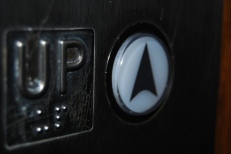“‘Parent trigger’ bill triggering debate in Florida”
by Bill Kaczor, Associated Press
Miami Herald
March 5, 2012
A bill that would let parents “trigger” a turnaround plan for failing schools would cause disputes and dissension in Florida’s public schools, opponents said Monday.
That’s yet to be proven, but it is causing plenty of turmoil in the Florida Legislature as it has in California, where the idea originated.
The Florida PTA and other bipartisan opponents held a news conference Monday to criticize not only the bill that’s supported by former Republican Gov. Jeb Bush but the way it’s been ramrodded through the GOP-controlled Legislature.
School officials would be required to adopt a turnaround plan if a majority of parents sign a petition.
Supporters say the “parent trigger” is a way to empower parents and encourage them to participate in school affairs. Critics contend it’s a ploy for handing public schools to private management or charter school companies.
“It has everything to do with laying the groundwork for the hostile, corporate takeover of public schools,” said Senate Democratic Leader Nan Rich of Weston. “Parents will divide against parents and even children will divide against children.”
Florida PTA Vice President Dawn Steward said corporations put the stockholders’ interest first.
“Their stockholders aren’t going to necessarily be children,” Steward said. “My stockholders are children and I’m a volunteer and I represent 330,000 voices.”
The trigger bill is being pushed by Bush’s Foundation for Florida’s Future and the California-based Parent Revolution. The group contends the legislation is not intended to promote charters, although that’s one turnaround option.
Parent Revolution spokeswoman Linda Serrato said it actually would add another step – the parents’ petition – to existing procedure for creating charters, which get public funding but are run by entities other than elected local school boards.
“So to put it in context, I’m a big bad for-profit charter










 Charters are not only closing the achievement gap for those stuck in failing schools but educating diverse student populations that represent wide variation in income and race.
Charters are not only closing the achievement gap for those stuck in failing schools but educating diverse student populations that represent wide variation in income and race.
